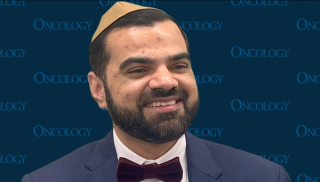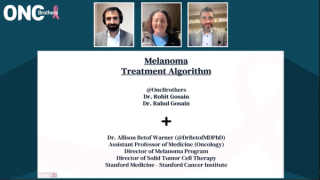
Skin Cancer & Melanoma
Latest News
Video Series

Latest Videos
Shorts
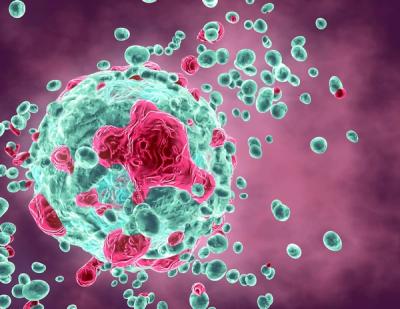
Podcasts
CME Content
More News
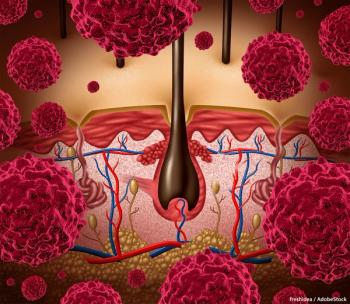
Investigators are currently assessing treatment with Alpha DaRT among those with recurrent CSCC as part of the ReSTART trial.

Sorafenib improved the median progression-free survival compared with placebo among patients with metastatic uveal melanoma in the STREAM study.
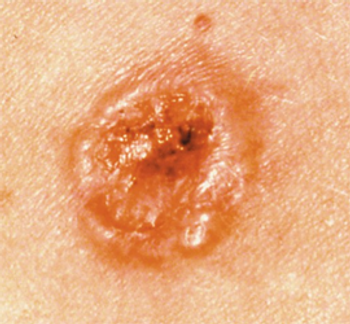
Updated results from the phase 1 CK-301-101 trial support the updated label for cosibelimab in this cutaneous squamous cell carcinoma population.

At 1 and 2 years, the progression-free survival rates were higher with nivolumab plus ipilimumab vs pembrolizumab in patients with cutaneous melanoma.

One patient with metastatic bladder cancer experienced an ongoing metabolic complete response following treatment with aldesleukin/imneskibart.

Biomarker analyses and real-world comparisons to refine patient selection are ongoing in the phase 2 PLUME trial.

The 24-month RFS rates were 95.1%, 81.2%, 69.4%, and 48.4% in patients with stage III melanoma who experienced a pCR, near pCR, pPR, pNR, respectively.

The agency has set a PDUFA date of April 10, 2026, for the decision on RP1 plus nivolumab in patients with previously treated advanced melanoma.

A novel cancer vaccine, IO102-IO103, combined with pembrolizumab, showed promising results in improving PFS for advanced melanoma.

Cemiplimab showed comparable rates of second primary tumors and improved disease-free survival in high-risk cutaneous squamous cell carcinoma patients.

Nine-year final results from the CheckMate 238 trial demonstrated that adjuvant nivolumab significantly improved time to second disease progression.

BNT111 combined with cemiplimab showed promising efficacy in treating PD-(L) PD-L1-relapsed/refractory melanoma, achieving an 18.1% objective response rate.
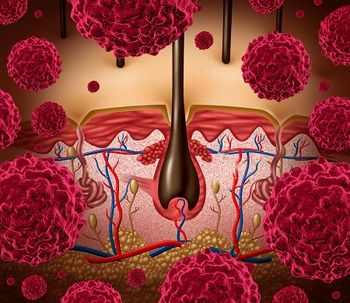
Single-agent pembrolizumab achieved an ORR of 89%, with a 37% CR rate, in patients with advanced desmoplastic melanoma in the phase 2 SWOG S1512 trial.

Data from a phase 1/1b trial showed that WTX-124 achieved clinically meaningful activity in those with advanced melanoma following SOC immunotherapy.

Findings from the phase 3 C-POST trial support the FDA approval of cemiplimab in this cutaneous squamous cell carcinoma population.

Pathologists should try to educate oncologists about the sensitivity and specificity of assays to help optimize care plans, said David Rimm, MD, PhD.

Adjuvanted imsapepimut and etimupepimut plus pembrolizumab did not yield a statistically significant PFS improvement as treatment for advanced melanoma.

Artificial intelligence used in conjunction with clinicians may help standardize and expedite pathology workflows and reduce variability in TIL scoring.

An 80% disease metastasis–free survival rate occurred in those with uveal melanoma who received a brachytherapy plaque with vitrectomy and silicone oil.

Clinicians discuss the best treatment options for a 46-year-old woman diagnosed with BRAF+ melanoma.
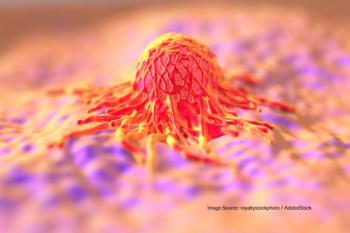
Two studies were recently published that validated the use of the DecisionDx-SCC test as a tool for the treatment of cutaneous squamous cell carcinoma.

D-MNA achieved complete clinical clearance in 60% of patients, with no dose-limiting toxicities or serious adverse effects observed in those with basal cell carcinoma of the skin.

The novel cancer vaccine plus pembrolizumab missed statistical significance but generated a clinically meaningful improvement in advanced melanoma.
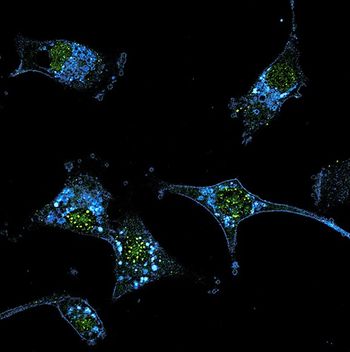
At 4 years, about 20% of patients with advanced melanoma who received tumor-infiltrating lymphocyte therapy were alive and responding to treatment.

Innovative oncolytic virus therapies transform advanced melanoma treatment, enhance patient outcomes, and overcome resistance to traditional immunotherapies.





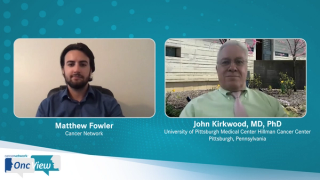
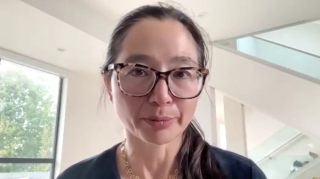

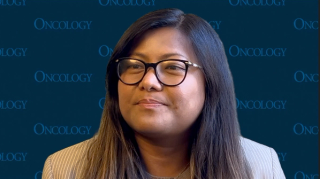
![A third of patients had a response [to lifileucel], and of the patients who have a response, half of them were alive at the 4-year follow-up.](https://cdn.sanity.io/images/0vv8moc6/cancernetwork/6b7c9a3270c71a70749ba86000cfc78a29d74309-2988x1702.png?w=320&fit=crop&auto=format)
